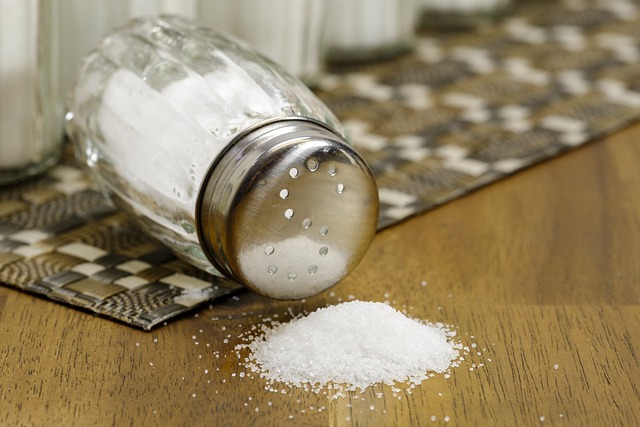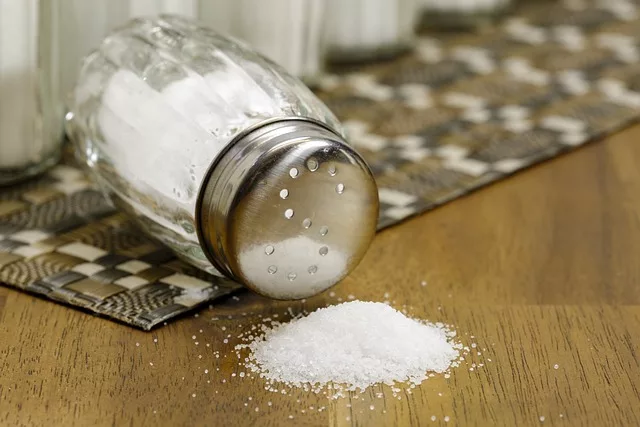Salt, or sodium chloride, is a mineral that has played a crucial role in human history, from preserving food to enhancing its taste. Beyond its culinary uses, salt also plays a vital role in maintaining hydration and electrolyte balance in the human body. This article explores the significance of salt in hydration and electrolyte balance and provides guidelines on how much salt to consume for optimal health.
Electrolytes and Their Importance
Electrolytes are essential minerals that carry an electric charge and help maintain various physiological functions in the body. The key electrolytes include sodium, potassium, calcium, magnesium, chloride, bicarbonate, and phosphate. They are involved in nerve transmission, muscle contractions, fluid balance, and the regulation of pH levels.
Salt and Fluid Balance
Salt, particularly sodium, is a critical component in maintaining fluid balance within and outside the cells. It achieves this by attracting water through osmosis. When the body’s sodium levels are in balance, cells remain hydrated, and the overall fluid balance is maintained.
Salt Loss and Replenishment
The body loses salt through various mechanisms, such as sweating, urination, and even normal cellular functions. During physical activity, excessive sweating can lead to significant salt loss, which needs to be replenished to avoid dehydration and electrolyte imbalances. Athletes and individuals engaged in strenuous exercise must be particularly mindful of their salt intake and consider sports drinks or electrolyte supplements in some cases.
The Link Between Salt and Hydration
Contrary to the common belief that high salt intake leads to dehydration, adequate salt consumption is essential for proper hydration. When the body experiences an electrolyte imbalance due to insufficient salt intake, it may lead to water retention as the body attempts to maintain a balance of fluids and electrolytes.
Health Implications of Excessive Salt Intake
While salt is necessary for the body’s functioning, excessive salt consumption can have adverse effects on health. A diet high in salt has been linked to hypertension (high blood pressure), which is a risk factor for cardiovascular diseases. Furthermore, excessive salt intake can strain the kidneys’ function and may contribute to kidney stones and osteoporosis.
How Much Salt Should You Consume?
The recommended daily intake of salt varies among different health organizations. Generally, most adults should aim to consume no more than 2,300 milligrams (mg) of sodium per day, which is approximately one teaspoon of salt. However, the ideal intake for most adults is even lower, around 1,500 mg of sodium per day. For children and individuals with certain health conditions, such as hypertension, the recommended intake may be even lower and should be discussed with a healthcare provider.
Tips for Reducing Salt Intake
Reducing salt intake can be achieved through several strategies:
- Read food labels: Be mindful of the sodium content in packaged foods and choose lower-sodium options.
- Cook at home: Preparing meals at home allows better control over the amount of salt used in cooking.
- Flavor with herbs and spices: Replace salt with herbs, spices, and other flavorings to enhance the taste of dishes.
- Limit processed foods: Processed and fast foods are often high in salt, so reducing their consumption can significantly lower salt intake.
Salt plays a vital role in maintaining hydration and electrolyte balance in the human body. However, excessive salt intake can have negative health implications. Striking a balance and adhering to recommended daily sodium intake guidelines is crucial for overall health and well-being.
Salt and Sugar
-

10 Powerful Tips to Curb Sugar Cravings and Improve Your Health
Introduction: Sugar cravings can be a challenge when trying to maintain a healthy diet. The intense desire for sugary treats can derail your efforts to eat nutritiously and lead to unwanted weight gain and negative effects on your overall health. In this article, we will provide you with 10 effective tips to help you stop…
-

The Role of Salt in Fluid Retention and How to Use This for Health
-

Salt and Sugar Can Hurt Your Gut Health
-

The Truth About High Fructose Corn Syrup: Why It’s Bad for You
-

What is Sugar Addiction and How to Beat It
-

Quit Artificial Sweeteners NOW! Understanding the Risks to Your Health
-

Best Sugar Alternatives to Sweeten Your Tea and Coffee









Leave a Reply